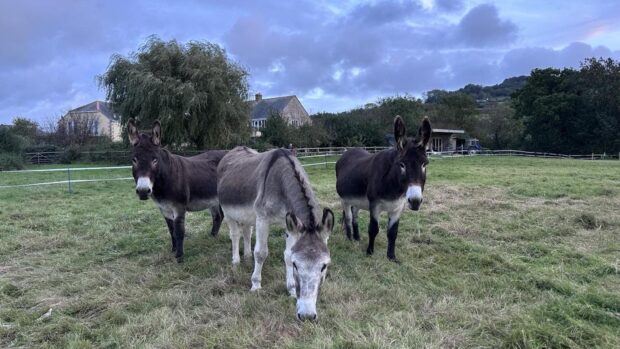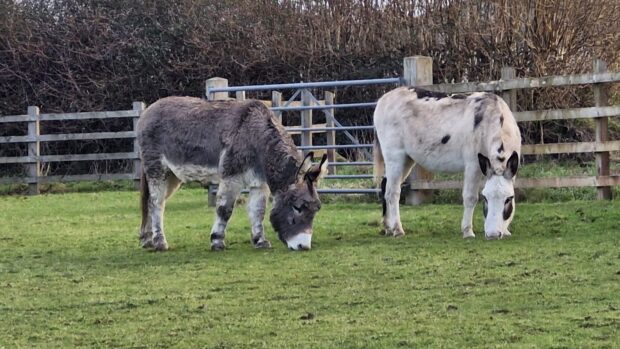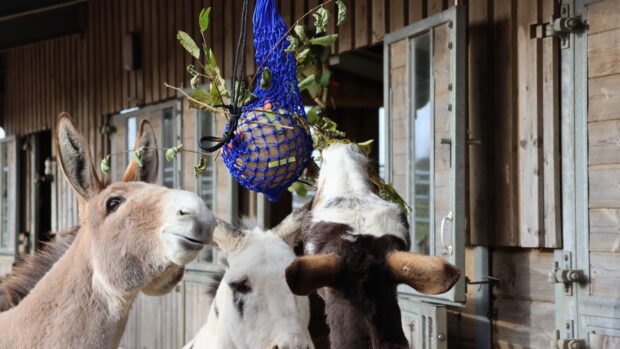Almost six million donkeys are slaughtered every year for their skins, new figures show, in what has been described as an “animal welfare disaster”.
The Donkey Sanctuary has today (16 February) released a report showing that at least 5.9m donkeys are killed every year to make eijao, a traditional Chinese remedy. Manufacture of eijao, which is made using collagen from donkey skins and marketed as a luxury product, has doubled in the past five years, driving the slaughter after the “rapid decline” of China’s donkey population.
Marianne Steele, CEO of The Donkey Sanctuary, said: “The slaughter of six million donkeys every year is an animal welfare disaster. Donkeys are a lifeline to people living in some of the most challenging environments on earth where the loss of a donkey can be the difference between modest survival and destitution.
“Donkeys have been invisible in political debate for too long. For this issue to have reached the highest levels of decision-making in Africa and Brazil recognises the scale and brutality of the skin trade, and the vital role of donkeys around the world.”
The charity has released its report in time for the African Union Summit, on 17 and 18 February, at which heads of state will “determine the fate of donkeys across the continent”.
“In response to the existential threat facing donkeys in Africa, heads of state and government are expected to endorse a report which recommends a continent-wide ban on the slaughter of donkeys for their skin,” a Donkey Sanctuary spokesman said.
“The final ratification of the report will be announced during the 37th African Union Summit, marking a pivotal moment in the ongoing efforts to protect donkeys and the communities that rely on them.
“On the other side of the Atlantic in Brazil, where donkeys are also trafficked and killed for the skin trade in large numbers, a bill to ban the slaughter of all equids is expected to pass the National Congress in 2024.”

A worker carries one of many dried donkey skins at a slaughterhouse in Kenya. Picture by The Donkey Sanctuary
Donkey Sanctuary researchers used previously published statistical modelling and the most recent production figures from the ejiao industry to give the estimate of the number of donkey skins needed to keep pace with demand. The 5.9 million is their “most conservative estimate”; the figure is projected to reach 6.7m by 2027.
Faith Burden, executive director of equine operations and deputy CEO of The Donkey Sanctuary, said: “These new figures are shocking, even to those who were already aware of the skin trade. Donkeys suffer at every stage of the trade – from being taken, transported long distances and held, often terrified and in overcrowded conditions, before they are slaughtered and discarded after their skins have been removed.
“Donkeys are intelligent and sentient animals who deserve protection in law. A ban on their slaughter and export across Africa and Brazil would represent a huge win for donkey and animal welfare and for the many millions of people who depend upon them.”
Calvin Solomon Onyango, director of The Donkey Sanctuary in Kenya said he sees the “devastating” impact of the skin trade.
“Not just the horrific treatment of these gentle animals, but also the effect it has on women, children and the communities who rely on donkeys for their social and economic lives,” he said.
“The skin trade is inflating the price of donkeys here in Kenya and across Africa, making it very hard for families to replace an animal after it has been sold or stolen. Agents working for the ejiao industry persuade people, already living on the brink of poverty, to sell their animals for short-term gain. The reality is the long-term loss of livelihood, and eventually, the loss of a way of life for many communities.
“The destructive impact of the trade has led the governments of countries including Kenya, Nigeria and Tanzania, to outlaw donkey slaughter. However, the demand is such that we now see the emergence of illegal bush slaughter, with hundreds of donkeys taken or stolen and slaughtered for their skin.”
Dr Onyango said there is now a strong will in governments to protect donkeys and the people who rely on them.
“We are therefore hopeful that Africa’s heads of state will ban the slaughter of donkeys for their skins, across the continent,” he said. “Based on what we have seen here in Kenya, if the exploitation of donkeys continues at this rate, in another three to six years, donkeys could be joining rhino and elephants as an endangered species in Africa.”
You might also be interested in:
Horse & Hound magazine, out every Thursday, is packed with all the latest news and reports, as well as interviews, specials, nostalgia, vet and training advice. Find how you can enjoy the magazine delivered to your door every week, plus options to upgrade your subscription to access our online service that brings you breaking news and reports as well as other benefits.




